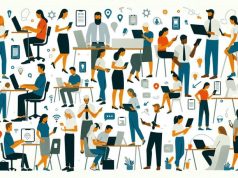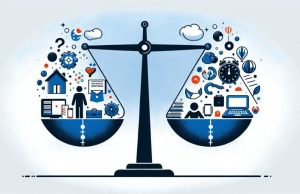As we stand at the precipice of an unprecedented technological revolution, the narrative of progress is being rewritten. Artificial intelligence (AI) and automation herald a new age of efficiency and industry transformation. But beneath the surface of these advancements lies an ethical minefield that challenges the very fabric of our workforce. In this comprehensive exploration, we will venture beyond the surface-level benefits of these technologies to unveil the complex tapestry of moral dilemmas they present.
Picture a future where machines with near-human intelligence perform tasks ranging from the mundane to the complex, and robots work alongside humans or replace them entirely. It’s a future that isn’t as distant as it may seem. In some industries, that day has already arrived. The rapidity of this change brings with it a host of concerns—one of the most pressing being the potential displacement of human labor. As AI becomes more sophisticated, what will become of the workers whose jobs are automated?
This isn’t just a question of economics; it’s a matter of diversity and inclusion. Automation has the potential to disproportionately affect certain demographic groups, exacerbating existing disparities. How will we ensure that the workplace remains diverse and inclusive if machines begin to take over roles traditionally filled by humans?
To answer these questions, we look to case studies where AI has already made its mark. From automated customer service representatives to advanced manufacturing robots, we’ve seen both the positive and negative impacts of these technologies. The key lies in leveraging AI as a tool to augment the workforce rather than replace it, ensuring that employees are re-skilled and up-skilled to work alongside these new technologies.
But the corporate responsibility does not end there. As employers, the ethical integration of AI into the workplace demands a proactive approach to maintaining, if not enhancing, diversity. It requires creating new policies and fostering a culture that embraces continuous learning and adaptation. It means implementing oversight to ensure that AI is not replicating biases, but rather, is being used to break down barriers.
As readers of The Work Times, you are no strangers to the complexities of the evolving workplace. We challenge you to consider the wider social implications of AI and automation. What are the responsibilities of corporations in this new era? How can they proceed with mindful progress that benefits all stakeholders? The answers to these questions will shape the future of work for generations to come.
Join us on this deep dive as we dissect the ethical implications of AI and automation in the workplace. Together, let’s explore what it truly means to progress responsibly, ensuring that as we embrace the future, we do not lose sight of the values that define us as a society.



























